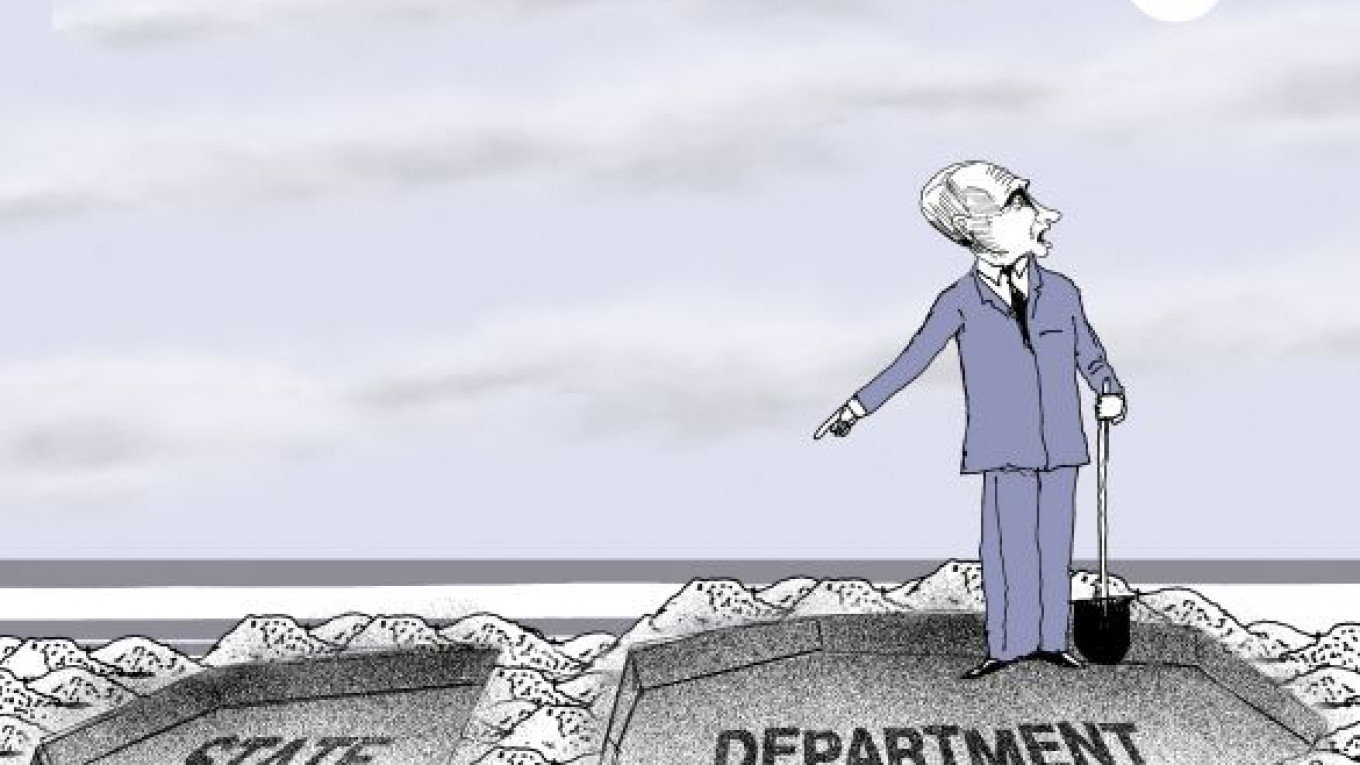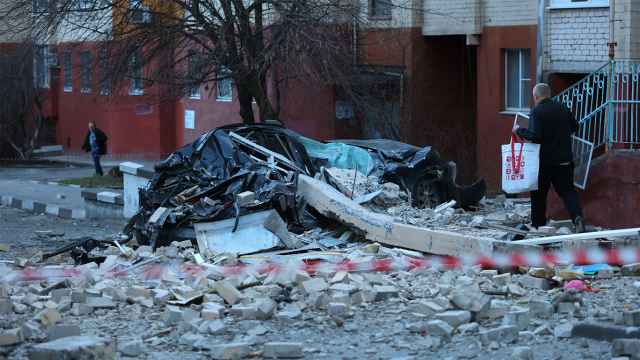During every U.S. presidential election campaign, there is a debate in Russia over whether the Republican or Democratic candidate would be more beneficial for the Kremlin. Russian analysts and politicians always fail to understand that Americans have shown little interest in foreign policy since the end of the Cold War. Even when foreign policy is mentioned in the campaign, Russia is far down the list as a priority item.
The volume of U.S-Russian trade remains small. The recent Exxon-Rosneft deal notwithstanding, U.S. interest in Russia's energy projects has fallen, particularly as the Kremlin has increased its role in this sector. To make matters worse, the United States is determined to establish clean energy and energy independence, while Russia's gas exports are feeling the pinch from stiff competition with the U.S. development of shale gas production.
Of course, traditional areas of cooperation remain: the transit of shipments to and from Afghanistan through Russia, Iran's nuclear program and the struggle against international terrorism. But the transit route into Afghanistan cannot, by itself, greatly influence bilateral relations as a whole, and progress on the other two points seems to have reached a plateau beyond which little potential remains for bringing the two countries into closer cooperation.
On the positive side, a new visa agreement came into force this week that will facilitate greater contact between both countries' citizens. But it will be years before that significantly influences overall U.S.-Russian relations. A new agreement regarding child adoptions has also been implemented after a few disturbing adoption stories prompted Russia's media, with the help of government propaganda, to spoil the U.S. image in Russia.
Meanwhile, both U.S. President Barack Obama and Republican candidate Mitt Romney support the U.S. missile defense program in principle, although the exact form and scope of its deployment differ among the candidates. Even though President Vladimir Putin, during his interview with RT state television last week, expressed guarded optimism over the prospect of reaching an agreement on missile defense with Obama, Russia seems to underestimate the degree to which Americans are fixated on missile defense as a central component of their national security. It is highly unlikely that any U.S. administration — Democratic or Republican — will ever agree to major concessions on missile defense.
It even seemed that Kremlin propagandists were happy when in March Romney called Russia the United States' No. 1 foe. They were given another present when Obama, addressing the Democratic National Convention last week, said Romney's comment only proved that he lacked foreign policy experience and was locked in Cold War thinking. For the next two months, however, the two candidates are unlikely to devote much attention to Russia.
Russia's internal politics will also be one of the key factors shaping future U.S.-Russian relations. The two-year jail sentence slapped on three members of Pussy Riot for their anti-Putin prayer in Moscow's main cathedral has already become a subject of discussion between Foreign Minister Sergei Lavrov and U.S. Secretary of State Hillary Clinton. Even the most pragmatic "pro-reset" U.S. administration would criticize to one degree or another Russia's poor record on human rights.
It appears that Russia is moving increasingly toward confrontation rather than rapprochement with the West. The Kremlin now seems fully committed to spreading the myth that the U.S. State Department is the cause behind most of Russia's domestic problems and is bent on undermining its national security by deploying missile defense installations in Europe and by supporting the opposition.
There are other disturbing signals as well. Take, for example, the United Russia bill that would prohibit Russian officials from owning bank accounts and property overseas, with particular attention paid to their holdings in the West. The ideological underpinning of this bill is that assets located in the West are tantamount to betrayal of the motherland. Then there is Russia's opposition to the U.S. Magnitsky Act. The Kremlin interprets this initiative as yet another confirmation of its suspicions that Washington is conspiring against it and that the bill's real U.S. motive is to blackmail Russian officials by threatening to freeze their overseas bank accounts and property.
An increase in these anti-Western attitudes does not bode well for U.S.-Russian relations, even if Obama is re-elected in November. Regardless of which candidate wins, the reset is bound to either slowly die a natural death under Obama or be extinguished outright under Romney. As a result, the most we can likely expect from U.S.-Russian relations in the next four years is cooperation on a limited range of mundane issues. Under these conditions, avoiding excessive anti-Russian or anti-U.S. rhetoric from both sides would itself be considered a major achievement in bilateral relations.
Georgy Bovt is a political analyst.
Related articles:







